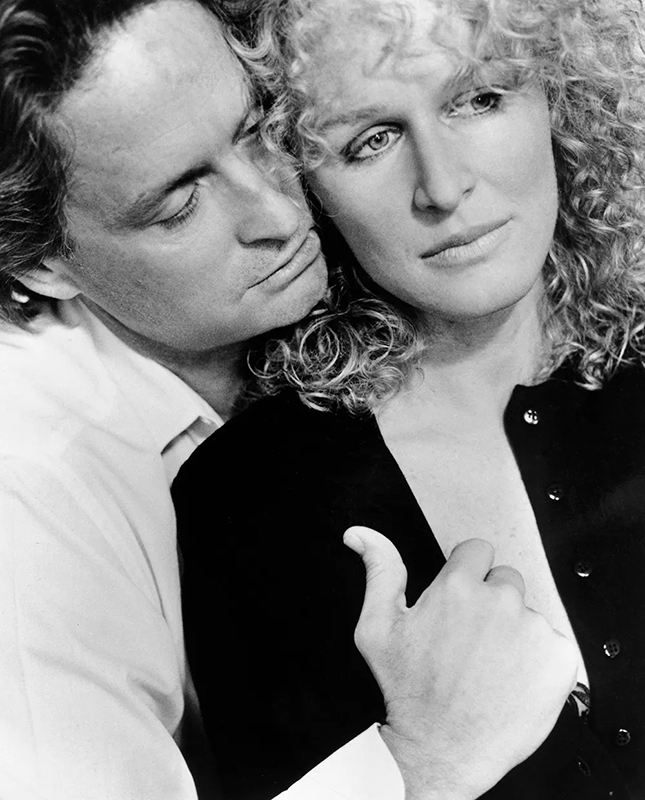There isn’t another actor alive whom I’d rather watch than Michael Douglas. Just as Pauline Kael once said that the thought of Cary Grant makes us smile, so the thought of Michael Douglas makes me grin, smirk, nod, wink, cackle, cheer – and walk a little taller, too. Even his anti-heroes are heroic in their truth to self. From the sly, ophidian sneer of his washed-up money man in A Perfect Murder to the salty, satanic leer of his trigger-happy cop in Basic Instinct, Douglas has embraced self-destruction, stared down absurdity and made plain what Nietzsche meant when he said that man is either a ‘laughing stock or a painful embarrassment’.
But no matter how much Douglas means to me, he means a whole lot more to Jessa Crispin. In What is Wrong With Men she uses him and his movies as a lens through which to focus on the crises she believes cripple our culture. You want to understand how power is perverted by corporate greed? Check out Wall Street. Baffled by what drives high-school shooters? Falling Down should be your first port of call. Wondering why men are alarmed by feminism while being both intrigued and repelled by women’s new-found openness about sex and sexuality? Watch Fatal Attraction.
If you’re thinking the book sounds right-on you’re on the right track. What is Wrong With Men is woker than an insomniac on a bed of nails, and Crispin merits a severe reprimand for her suggestion that the male midlife crisis is nothing but histrionic melodrama. But she is also witty and astute and – the odd solecism aside – not a bad writer. She might be a movie critic, but she steers well clear of film theory flannel. She might be a feminist, but she has no time for the sisterhood’s more sinister schemes. Whether or not she knows it, she is, if not quite liberal or bourgeois, an old-fashioned humanist. If F.R. Leavis had ever written a book on masculinity in the movies it would have read a lot like this one.
Indeed, rather like Leavis in his appraisals of Charles Dickens and D.H. Lawrence, Crispin has felt no need to work her way through the entire Douglas canon. (Praise be, since it encompasses the best part of 70 movies and TV series.) True, her analysis of David Fincher’s The Game as a dramatisation of castrated patriarchy is a bit reductive (the movie is even more baffling than its most obvious inspiration, John Fowles’s The Magus). But it’s more than made up for by her reading of the geopolitical implications of what I’ve hitherto regarded as Ridley Scott’s mindless actioner Black Rain.
Having initially played opposite grand female stars, is Michael Douglas now typecast as the second lead?
Yet there are some curious omissions. There is no mention, for instance, of Coma. Michael Crichton’s adaptation of the Robin Cook bestseller was not only Douglas’s first big picture (after five years on the box in The Streets of San Francisco); it was also, more saliently, the first of many movies in which he plays second fiddle to a female protagonist (in this case Genevieve Bujold). A year later he starred opposite Jane Fonda in The China Syndrome, when once again the woman took the lead role (as a TV reporter) and Douglas followed her around like a lapdog (he’s actually her cameraman). Another year on, he played in a romcom, It’s My Turn – in which Jill Clayburgh gets all the speeches and the big character arc while Douglas looks on helplessly. More mystifying still in a book centred on male sexuality is why Crispin finds no room for Douglas’s Liberace biopic, Behind the Candelabra – a movie so graphic about Greek love it should have been called ‘Candelabra the Behind’.
While Crispin is right to see Douglas as the cinematic emblem of patriarchy under late capitalism, she rather lets the question of who cast him in that role go unanswered. Is it the case that having played opposite those grand female stars in his first big movies, he’s ever since been typecast as the second lead? Or could it be that Douglas, who has been a film producer almost as long as an actor, decided on the kind of characters he wanted to play from the start? Or, again, is it simply that his off-set producer activities have necessitated his taking a backseat on set? Answer comes there none. In other words, what is wrong with What is Wrong with Men is what, I’m told, is wrong with too many men: it’s not long enough.
